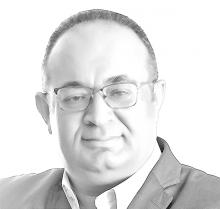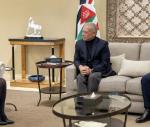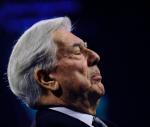You are here
‘Religion — phase two’
Jun 09,2013 - Last updated at Feb 06,2018
The relation between religion and the media, in light of the problematic concept of freedom, was examined in Beit Mery, Lebanon, this week.
An exciting conference, in which I participated, addressed this complex triangle in a context of post-Arab Spring tensions.
Participants of various backgrounds and cultural references from many Arab countries presented their opinion on the subject. I represented the Royal Institute for Interfaith Studies.
As I am always interested in the theme of religious references and their role in the structures of different identity components, I was thrilled to see such diverse and complex identities gathered at the conference.
The hall in which it was held embraced Muslims and Christians, secular and spiritual people, conservatives and liberals, people from religious institutions and from civil society, in addition to all sorts of media representatives. Bloggers and social media activists were also present.
This varied mosaic added to the richness of the subjects discussed.
Points of views coming from hundreds of angles helped create a very active atmosphere of intellectual exchange. Elevated religious ideas, philosophical themes and humanistic trends were expounded at the same table, often with humour, fun and creativity.
The intelligent design of the sessions and their management met the expectations.
Indeed, tackling such an important subject as “freedom, journalism and religion” always requires a smart formula.
I was relieved to find out that it was not “just another conference”. The seriousness of the subject and the design produced a great environment, conducive to such intellectual exercise.
I always differentiate between religion as identity, and religion as representation. When religion is lived as an identity by its adherents, we need to look deep into emotions, mentalities and hidden forms of expression if we are addressing a serious issue. Yet, if a problem is related to a representation of religious affiliation, then a different approach is needed. In this case, it depends on the context it lives in.
This is often the situation of political parties that base their ideological discourse in religious conception and language. The conference in Beit Mery based its work on the latter embodiment of religious experience. Maybe it is a good idea for the organisers to think of another conference that tries examining the above-mentioned triangle with identity as its main flavour.
Though the conference discussed issues related to religious identities, its structure inclined to the representative mode of religions. It enriched the participants’ storage of religious-based images and shadows of images.
It was a great opportunity to map some of the crisis stimulating issues that reside deep in the conjunctions the freedom, journalism and religion combination.
I hope that the outcome, whether in publication shape or electronic format, will be an excellent foundation for what we might call “Religion — phase two”. Identity as concept and as a lived reality helps much in resolving many puzzles in the Middle East.
The writer is a media strategist, and an interfaith and intercultural specialist. He contributed this article to The Jordan Times.













